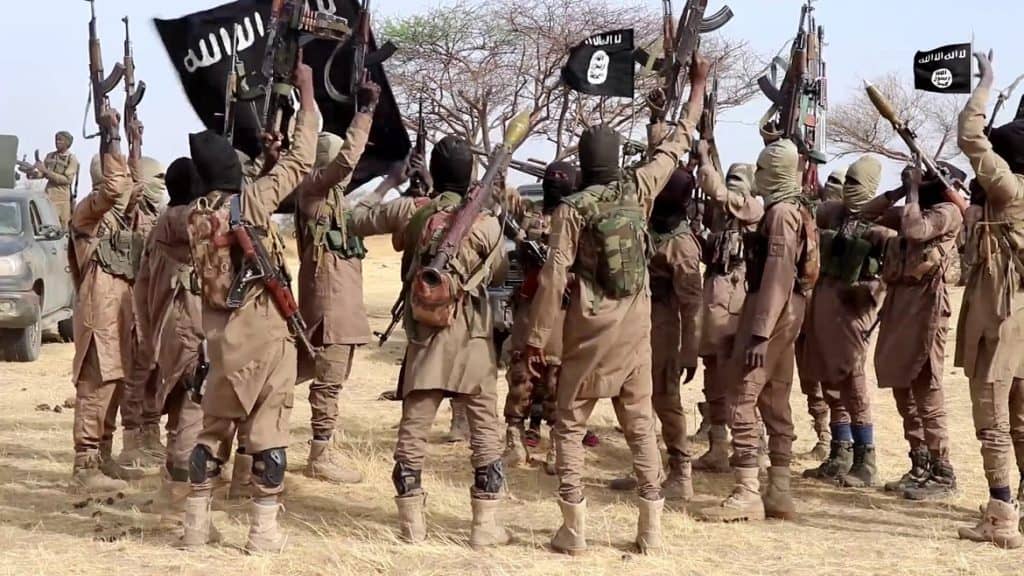By Denis Korkodinov
On the African continent, there is a high risk of the emergence of the Islamic State Caliphate. African terrorist groups are actively seeking to create a large conglomerate that poses a threat to global security. AFRICOM command is forced to admit insolvency of its policy to neutralize the influence of Boko Haram, Al-Shabaab, Silik and terrorist organizations affiliated with them.
The main difficulty in the fight against African jihadists is that they have strong blood-blood ties with local tribes, which allows them to receive additional support and freely use the tribal authority to carry out their terrorist activities. At the same time, African Bedouins, as a rule, are favorably inclined towards ISIS, in whose activity they see almost the only source of income.
This state of affairs largely explains why in January 2019, more than 4,000 people were killed at the hands of terrorists in Mali, Niger and Burkino Faso, while completely ignoring the problem on the part of local tribes.
American sources proceed from the opinion that the fight against international terrorism on the African continent could fail if there is a significant limitation of the size of the US armed forces. European leaders and, above all, French President Emanuel Macron are in solidarity with Washington and are trying to influence the administration of Donald Trump so that he abandons his plans to limit the American contingent in Africa.
Although, as experts say, the main reason for the concern of European countries is due to their unwillingness to send their own weapons to a troubled region, thereby exposing themselves to the threat of a direct clash with terrorist organizations. Meanwhile, in 2019 alone, terrorist activity mainly in Mauritania, Senegal, Mali, Niger, Burkino Faso, Sudan and Eritrea increased by about 5 times.
According to official AFRICOM command reports, there are currently 5 large terrorist units operating in sub-Saharan Africa that control about 80 percent of the territory. These formations began the process of unification, creating the prerequisites for the formation of a single caliphate, which causes serious concern on the part of the entire international community.
The greatest danger in the Sahel region, according to American experts, is the Al-Shabaab terrorist organization. AFRICOM command considers this organization as “a significant threat to American interests, which could pose a danger to the whole world if it is not stopped.”
Sources say that the Islamic State and Al Qaeda groups operate in the alliance to establish control over the entire territory of West Africa. This state of affairs may pose a threat to global security, in connection with which the international community continues to watch with concern at all the events taking place in the region, and try to prevent the merger of terrorist groups. Meanwhile, jihadists began to use more sophisticated tactics, as a result of which they took strong positions in Mali, Niger and Burkino Faso. So, only on March 23, 2019, in the village of Ogossagu (Mali), terrorists killed more than 150 civilians. In addition, more than 400 people were killed in the northern and central regions of Mali for religious reasons, and about 85 thousand people were forced to leave their homes under pressure from terrorist organizations.
An equally dangerous terrorist situation has developed in Burkino Faso, where major attacks take place almost monthly. Currently, terrorist activity in Burkino Faso has reached catastrophic proportions, in connection with which the country’s leadership was forced to call on the international community to provide assistance in the fight against jihadists.
The largest terrorist attack in Burkino Faso took place on February 17, 2020, when terrorists killed 24 people in a Protestant church in Pansy.
It is worth noting that recently terrorist organizations have intensified their attacks on schools and teachers. Thus, the terrorists demonstrate their strong protest to secular education and advocate for the population of the countries to remain in total poverty and illiteracy.
In this regard, the international community needs to significantly strengthen its fight against terrorist organizations in order to ensure security in the Sahel region and create conditions for the sustainable development of Africa. An excellent example of this is demonstrated by Mauritania and Chad, which are actively using preventive measures to neutralize the hotbeds of terrorism. In particular, Mauritania has become a leader in coordinating its anti-terrorism programs with the AFRICOM command and creating the so-called Trans-Sahara Counter-Terrorism Corridor. In turn, Chad successfully uses its armed forces to combat jihadists.
Thus, African countries have the potential to fight international terrorism. However, for a more effective struggle, they need real support from the West and Russia.
(The views expressed in this article belong only to the author and do not necessarily reflect the views of World Geostrategic Insights).







